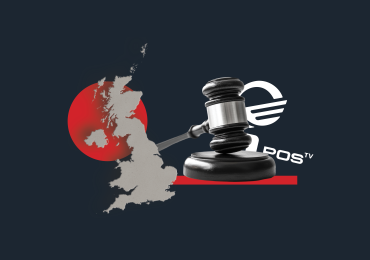If you are looking for a new location for your business, you should definitely consider the eastern European country of Georgia, which is ranked #6 in the World Bank Group’s 2019 survey of ‘doing business’. Sixth place should not be taken for granted; it was the result of more than a decade long commitment from the country to become one of the most attractive investment locations in the world.
if you don’t trust the World Bank’s ranking, please read the following article where I’ll briefly explain only some of many advantages investors can enjoy if they relocate their business to Georgia. The most saving will be made on tax benefits, they are applicable for both natural and legal persons.
EASE OF STARTING A BUSINESS
You need only one day and no capital to found a company in Georgia. No limitation applies to foreign shareholders and/or directors.
BENEFICIAL CORPORATE INCOME TAX SYSTEM
Corporate income tax (CIT) is only 15% in Georgia and, moreover, the so-called ‘Estonian CIT model’ is applied within the jurisdiction. This means that tax is only paid upon the distribution of dividends by a company.
In other words, companies in Georgia do not pay any corporate income tax until the profit is distributed to shareholders (except in some cases when a transaction is deemed to be profit distribution). Therefore, if the company decides to re-invest the profit, no CIT is charged on the reinvested amount.
Notably, there is no special tax on capital gains in Georgia. Capital returns fall under the general CIT rules and 15% tax is payable only after profits are distributed.
VAT
The VAT rate and VAT reverse charge rate is 18% in Georgia.
Both traditional and reverse VAT is payable only for business operations conducted within the territory of Georgia.
Starting in 2020, the entire VAT system in Georgia will be amended and harmonized with EU VAT rules. The process will facilitate trade relations between the EU and Georgian residents.
WITHHOLDING TAX
The withholding tax rate for wages is 20% without deductions, plus a 2% contribution to the pension fund in the name of the company and a 2% contribution is also made by the employee.
Withholding tax on service remuneration is 10% in the case of non-residents. Here, one important exception is that the payment to a non-resident natural person for renting a property used for non-living purposes bears a 20% withholding tax rate.
Withholding tax on dividends is 5%. This is applicable in the case of payment to residents or non-residents. In addition, a dividend recipient Georgian resident natural person is not taxed on this income. Withholding tax on interest is 5%; this applies to both residents and nonresidents. In addition, a dividend recipient Georgian resident natural person is not taxed on this income.
Withholding tax on royalty payments is 5%; this is applicable to all non-residents.
If a Georgian taxpayer makes payments for services, royalties, or interest to a taxhaven-based person, a higher – 15%–withholding tax rate is applicable.
GEORGIA’S RICH TAX TREATY NETWORK
Georgia has signed double taxation treaties with 56 states so far, most of which are based on the old (2008 and older) OECD model.
Almost half of Georgia’s treaties provide exemptions to source taxation in Georgia on interest, dividends, and royalties.
MULTIPLE TAX INCENTIVES
Georgia offers multiple tax incentives for corporations and natural persons, for example:
• Free Industrial Zones
• Virtual Zone Persons
• Small business status
• Territoriality principle
• Low tax on rental income
Some of them are described below.
There are several ‘Free Industrial Zones’ in the country where companies can register and pay almost zero tax.
If a Georgian company provides IT services abroad, they can easily obtain the ‘Virtual Zone Person’ certificate and pay 0% corporate income tax for such income even in case of distributing dividends (full exemption).
Natural person entrepreneurs with annual income of less than 500,000 Georgian Lari (about EUR 150,000 or USD 170,000) pay only 1% of their revenue if they obtain a certificate of ‘small business status’.
The territoriality principle applies to Georgian resident natural persons. Any income received by Georgian resident natural persons from non-Georgian source is exempt from personal income tax in Georgia. For example, dividends received from a non-resident company or pension received from abroad are not taxed in Georgia.
If resident or non-resident natural persons rent out a residential property used for living purposes only, a 5% income tax rate is applicable. The only precondition for enjoying the low tax rate is to apply to the Georgian tax administration and request the right of low taxation. Additionally, natural persons selling up to four apartments within four years are fully exempt from VAT. Surplus income gained by natural persons from selling residential property and any land attached to it or from selling a car is also taxable at only 5%.
LOW POSSIBILITY OF HIGH TAX
The Georgian tax administration has created guidelines on hundreds of tax issues that previously could not be clearly interpreted in the Georgian tax code. The manuals are publicly available and ensure that taxpayers can check the approaches of tax authorities regarding certain cases.
Even if a case does not fall into any of the above-mentioned manuals, a person can apply for an advance tax ruling from the tax administration, which costs approximately EUR 3,000 (USD 3,300). It takes a few weeks to a couple of months to receive an official answer, and this will be binding unless the law is changed.
COMPREHENSIVE TRANSFER PRICING RULING
Since 2013, Georgia has a comprehensive legislation (tax code articles 126-129 and Ministry of Finance decree #423) on transfer pricing.
The most important issues are clarified in either decree #423 or in guidelines created by the tax administration, which are more detailed and explain all the steps of transfer pricing analysis. When the Georgian transfer pricing legislation does not cover any transfer pricing issue, then reference to 2010 OECD transfer pricing guidelines is made.
There are no substantial differences between Georgian and OECD transfer pricing approaches (only minor ones) except for a Georgian transfer pricing rule providing that transactions with a tax haven-based person are considered controlled transactions, and therefore, fall within the scope of transfer pricing rules regardless of the association of the parties.
LOW WAGES &STRATEGIC GEOGRAPHIC LOCATION
The average salary in Georgia is less than $400 per month and expenses for gas, electricity, and other utilities are considerably lower than in the EU. This is an additional reason for multinational companies to shift their manufacturing businesses here.
In addition, Georgia –bordering the Black Sea – represents a well-known silk road route and acts as a crossroad between Europe and Asia, which makes it a great location and hub for international trade. Europe, central Asia, the Middle East, and North Africa are easily accessible from the country.
This article has described only some of the advantages Georgia offers investors. Please consider that there is a lot that is not here. I hope you have already found enough good reasons to be interested in investing here, but if not yet; just let us explain more to you in subsequent articles.
About the Author:
The author of this article is Gela Barshovi, a Georgian tax consultant and the founder of TPsolution LLC, a Tbilisi-based consulting company. Gela specializes in taxation and related professional services for non-residents, foreigners, and foreign-owned businesses in Georgia.

















